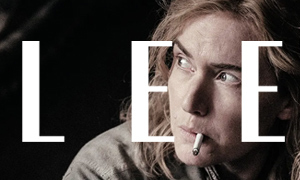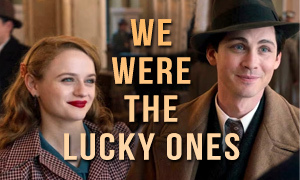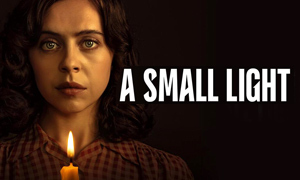How Accurate is "We Were the Lucky Ones"? History vs. Hollywood
Logan Lerman
Born: January 19, 1992
Birthplace:
Beverly Hills, California, USA
Addy Kurc
Born: 1913
Birthplace: Radom, Poland
Bio: Composer who Shares a Special Bond with his Sister Halina
Joey King
Born: July 30, 1999
Birthplace:
Los Angeles, California, USA
Halina Kurc
Born: April 17, 1917
Birthplace: Radom, Poland
Death: May 6, 1998
Bio: Youngest Kurc Sibling | Future Wife of Adam
Amit Rahav
Born: August 9, 1995
Birthplace:
Tel Aviv, Israel
Jakob Kurc
Born: 1915
Birthplace: Radom, Poland
Death: 1956, Illinois, USA
Bio: Photographer and Husband of Maryla (renamed Bella)
Hadas Yaron
Born: September 21, 1990
Birthplace:
Israel
Mila Kurc
Born: November 29, 1909
Birthplace: Radom, Poland
Death: March 14, 1983, France
Bio: Wife of Selim and Mother of Felicia
Artemisia Pagliano
Felicia Kajler
Born: abt 1937
Birthplace: Radom, Poland
Bio: Mila and Selim's Daughter
Henry Lloyd-Hughes
Born: August 11, 1985
Birthplace:
London, England, UK
Genek Kurc
Born: November 17, 1907
Birthplace: Dzierzków, Poland
Death: April 18, 1955, São Paulo, Brazil
Bio: Oldest Sibling | Lawyer | Husband of Herta
Lior Ashkenazi
Born: December 28, 1968
Birthplace:
Tel-Aviv, Israel
Sol Kurc
Birthplace: Poland
Bio: Patriarch of the Kurc Family
Robin Weigert
Born: July 7, 1969
Birthplace:
Washington, District of Columbia, USA
Nechuma Kurc
Born: April 15, 1888
Birthplace: Radom, Poland
Bio: Matriarch of the Kurc Family
Sam Woolf
Born: June 20, 1992
Birthplace:
London, UK
Adam Eichenwald
Born: May 21, 1907
Birthplace: Jaroslaw, Poland
Death: February 22, 1973, São Paulo, Brazil
Bio: Architect | Love Interest of Halina
Eva Feiler
Maryla Tatar
Born: September 20, 1917
Birthplace: Radom, Poland
Death: 1998
Bio: Wife of Jakob Kurc | Renamed Bella in the Series
Moran Rosenblatt
Born: September 14, 1985
Birthplace:
Tel Aviv, Israel
Herta Seifert
Born: 1912
Birthplace: Bielsko-Biala, Poland
Death: 1996
Bio: Wife of Genek Kurc
Lihi Kornowski
Born: November 24, 1992
Birthplace:
Kfar Saba, Israel
Eliska Lowbeer
Born: September 14, 1922
Birthplace: Brno, Czechoslovakia
Death: May 21, 2014, Chapel Hill, North Carolina, USA
Bio: Addy Kurc's Short-Term Fiancée
Are the characters in We Are the Lucky Ones based on a real family?
Yes. As you can see in the cast vs. real people section at the top of this page, the characters are based on the Kurc family, Polish Jews from Radom, Poland who were separated at the start of World War II. They became determined to survive the war and find each other again. In their desperate hunt for safety, the members of the family, including Addy Kurc, his parents, and his siblings, found themselves spread out across the globe. Their true story, which was first told in Georgia Hunter's 2017 book, spans five continents and six years.
How accurate is the book that We are the Lucky Ones is based on?
According to the book's author, Georgia Hunter, "The story that unfolds in [the book] is the real story! Every significant movement, incarceration, brush with death, and escape described in the book actually happened." While Hunter, who is the granddaughter of Addy Kurc, conducted extensive research, there was the occasional gap in the story. "Now and then when I stumbled across a gap, I allowed myself the creative license to fill it in—but only if I could answer yes with confidence to the question, Is it feasible that this could have happened?"
Given that author Georgia Hunter chose to turn her family's story into a novel that is historical fiction instead of telling it as narrative non-fiction, there are undoubtedly some embellishments in both the book and in turn, the Hulu series. While the most significant events in her family's history are present, she said that she put in "colorful details that would add more depth and emotion to [the] story."
For instance, Hunter's book describes the Kurc family going to Wierzbicki's Restaurant in Radom, Poland for special occasions. In the first chapter, the owner of the restaurant, Mr. Wierzbicki, even greets Hunter's great-grandparents at the door. This is all fictional. Hunter said that she discovered Wierzbicki's Restaurant during her research and that it was a popular establishment that Radom's middle class would have eaten at on birthdays or anniversaries. She speculated that given how established her family was in the community, it was possible that they may have gone to the restaurant and had such an experience, though she could not confirm it factually.
Hunter also says that she allowed herself creative license to dive deep into her settings and her characters' psyches to imagine some of what her relatives must have been feeling and thinking as they tried to survive the war. In doing so, she hoped to bring the novel "closer to the truth." For example, she imagined the thoughts that must have been running through Mila's head as she attempted to escape the ghetto with her young daughter Felicia in broad daylight. She tried to put herself into Maryla's shoes to convey the heartbreak she must have suffered when she lost her parents and her sister (Maryla is renamed Bella in the book and series). She also tried to imagine how torturous it must have been for her grandfather Addy to not know for seven years whether his family was still alive.
How is the author of We Were the Lucky Ones, Georgia Hunter, related to the Kurc family?
Georgia Hunter is the granddaughter of Addy Kurc, who is portrayed by Logan Lerman in the Hulu series. Georgia's mother is Addy's daughter Isabelle, who was born after Addy and his wife Caroline settled in Massachusetts in 1947. Sometime after the war, Addy changed his name to Eddy Courts. Georgia first learned that she was a quarter Jewish and came from a family of Holocaust survivors when she was 15 and her English teacher assigned the class a project to research their ancestry. Georgia sat down with her grandmother, Caroline, who revealed to her the truth about her family's history, including her grandfather, Eddy (real name Addy), who had died a year prior. To start, she learned that he was not born in the United States as she had always assumed.
Was Addy Kurc a composer?
In the Hulu series, Logan Lerman's character, Addy Kurc, is a composer. While conducting our We Were the Lucky Ones fact-check, we discovered that the real Addy Kurc was indeed a composer. The first hit song that he wrote was called List ("The Letter"). It was a voice and piano piece that was performed by Vera Gran. According to Addy, it aired multiple times a day on Polish radio. It's true that his fellow soldiers whistled the tune during his brief service in a Polish column of the French army. Recordings of Addy Kurc's songs still exist and you can listen to List on author Georgia Hunter's website. As noted earlier, Hunter, who wrote the novel on which the series is based, is Addy's granddaughter. She said that her grandfather played the piano and composed music all of his life but became especially devoted to it after he retired.
Did Addy Kurc meet Eliska Lowbeer aboard the refugee ship Alsina?
Yes. The real Eliska, a Czechoslovakian, was just 18 years old when she met Addy aboard the Alsina, which was transporting refugees from war-torn Europe to South America. Like in the series, Eliska's mother, who she referred to as "la Grand Dame," didn't approve of her budding romance with Addy, despite Addy always trying to win her over. Though Addy and Eliska were engaged for a time in Rio de Janeiro, they never married. When author Georgia Hunter, Addy's granddaughter, visited Eliska during her research for the book, Eliska spoke of her relationship with Addy. "Oh, we had our fun. Plenty of it. But your grandfather and I, we were too much alike. If we'd gotten married," she said, lifting her hands above her head and waving them toward the ceiling, "there would have been fireworks!"
It's true that Addy performed in the SS Alsina's first-class piano lounge, entertaining its passengers alongside some well-known performers like the famous concert pianists, the Kranz brothers.
Where did the title We Were the Lucky Ones come from?
The title of the Hulu series is taken from the title of Georgia Hunter's novel. While researching the true story, we learned that Hunter, who is the granddaughter of Addy Kurc, got the idea for the title from something her Great-Aunt Felicia (Mila's daughter) said during a family reunion in the summer of 2000. The reunion was held at Georgia's parents' house on Martha's Vineyard. Felicia and her cousins had spent the evening recalling stories about their parents during the war, including their near-death experiences. Felicia, who was nearly seven years old when the war ended, called the Kurc family's survival "miraculous."
On her official website, author Georgia Hunter describes the comment her great aunt made as the night wound down:
As the night came to an end, Felicia simply shook her head and said solemnly, 'We were the lucky ones.' Her words would stay with me until the burn to understand how my relatives could have defied such odds finally overcame me, and I couldn't help but start digging for answers.
Did the Kurc family defy unbelievable odds by surviving?
Yes. During her research for the book on which the Hulu series is based, author Georgia Hunter discovered a shocking statistic—less than 300 of the 30,000 Jews from her family's hometown of Radom Poland survived to the end of the war. Her family made up a considerable percentage of those 300, a fact that was hard to process at first, given the bleak odds of survival.







